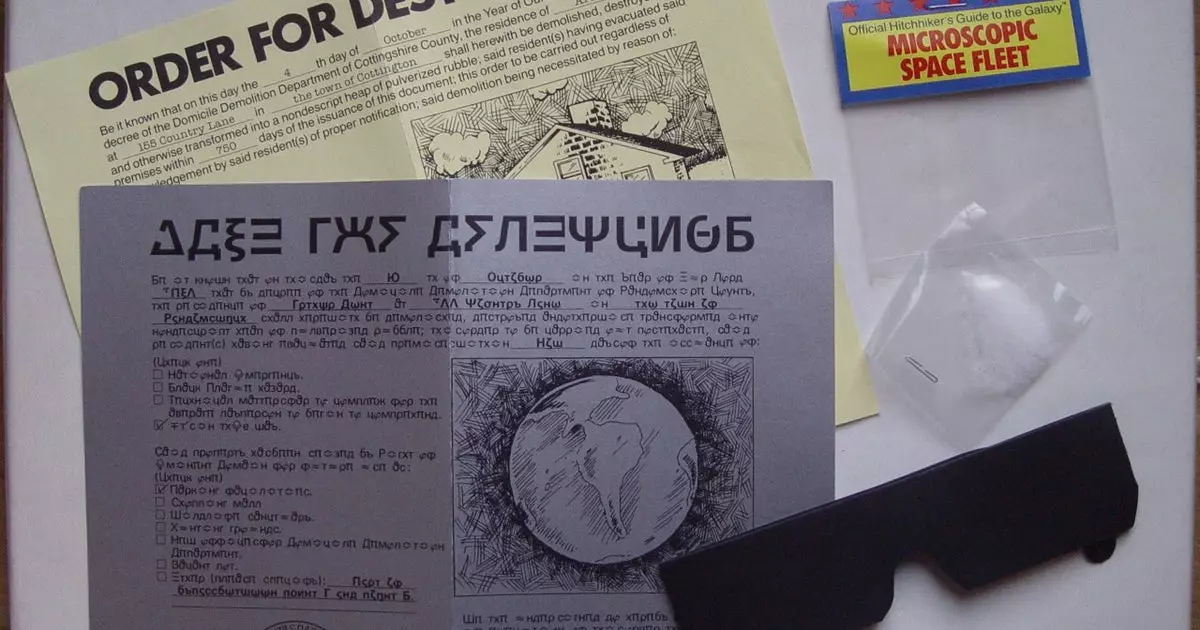In the digital age, the experience of gaming has evolved dramatically, often emphasizing grandeur, lifelike graphics, and high-stakes narratives. Yet, amidst this swirling sea of complexity, the allure of physicality—the tactile nostalgia of gaming ephemera—continues to resonate, particularly with those who remember the simpler joys of the past. One of the most delightful examples is the phenomenon of “feelies,” popularized by the now-legendary company Infocom. These quirky physical items, including everything from faux passports to guidebooks, are often overshadowed by the glittering allure of today’s digital content but deserve a moment in the spotlight.
A Journey Through Gaming’s Past
The roots of feelies lie in the fertile ground of the early 1980s when Infocom released its groundbreaking adventure game, The Hitchhiker’s Guide to the Galaxy. This game did not merely include a disk or cartridge—it came packed with quirky items that captured players’ imaginations. While some might view these additions as frivolous, they represent the very essence of adventure and discovery. Scott Krol’s insights highlight this nostalgia; he reflects on the creativity behind sending players on a whimsical quest complete with tangible treasures that challenge the norm. In a digital landscape where all things feel easily accessible and predictable, the inclusion of these items creates a layer of intrigue, asking players to look beyond screens and codes.
Ambiguity as an Engaging Element
Regan’s exploration of Arthur Dent, the story’s hapless hero, offers a significant perspective. The narrative paints him as a quintessentially English character grappling with the absurdities of existence—an embodiment of the ordinary man thrust into chaos. Regan’s characterization must resonate with many who find themselves questioning their roles in a world filled with uncertainties. The comparison of Dent’s willingness to confront a bulldozer is not merely a metaphor for his struggles; it mirrors the player’s journey through the game itself. It underscores a beautiful irony—players ultimately seek to find meaning amid digital chaos while wielding mundane distractions, thus elevating the inconsequential feelies to objects of heroic significance.
The Artistry of the Unused
Perhaps the real beauty of feelies lies in their simplicity and audience interactions. These items do not demand reverence or pedigree like modern-day collectibles; instead, they invite players into a world where the absurd and the mundane coexist. This contrasts starkly with today’s gaming landscape, where developers often aim for blockbuster releases adorned with extravagant merchandise that comes at a monetary premium. Infocom’s modest approach offers a refreshing break from today’s bombastic sounds and visuals. Instead of fueling hype, of forcing significance upon an experience, they rely on the intrinsic curiosity of the player—an all-too-rare element in an age where everything is dissected and analyzed ad nauseam before reaching the masses.
Cherishing the Quirks
There is a gentle defiance in recalling these feelies that reminds us to embrace flawed and imperfect objects. They spark joy precisely because they don’t fit neatly into our expectations; they challenge the status quo of collectible culture, which can often seem homogenized and commercial. By offering players what seem like utterly ineffective items, Infocom invites a dialogue about enjoyment, nostalgia, and experience—all of which are at the heart of gaming as a form of art. The current trend of meticulously crafted, highly prized collectibles threatens to homogenize our gaming culture, pushing unique individuality aside for solid profit margins.
Infocom’s feelies remind us that sometimes, the heart of gaming rests not in chart-topping sales or the glimmering exterior of high-end merchandise, but in the delightfully useless remnants of a journey filled with creativity and whimsy. These items reaffirm the notion that gaming should provoke thoughts, spark dialogues, and, most importantly, evoke smiles, even when they are utterly impractical.

